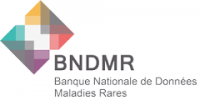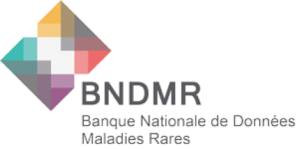Home > Research in rare liver diseases > French Database for Rare Diseases (BNDMR)
French Database for Rare Diseases (BNDMR)

What is the French Database for Rare Diseases (in French: Banque Nationale de Données Maladies Rares, BNDMR)?

The French Database for Rare Diseases (BNDMR) is a secure national database, set up at the request of the Ministry of Health, that enables the collection of a set of medical data from all patients affected by a rare disease in order to:
- Carry out statistical analyses and epidemiological studies (on incidence and prevalence, patient care pathway…)
- Monitor the annual number of patients
- Simplify the identification of patients eligible for clinical trials
Exploit data collected in a single hospital (monocentric), especially for PIRAMIG (activity reports for missions of general interest).
Which data is collected?
A minimum data set (MDS) is collected for each patient including the clinical management and the state of health of patients followed in French centres of expertise.
Minimum data set :
- General information on the participation of the patient in a research protocol
- Patient consent
- Anonymous and national identification of the patient
- Personal and family data
- Vital status
- Care pathway
- Care activity
- Disease history
- Diagnosis and confirmation of diagnosis
- Orphan treatment
- Health and neonatal data (optional)
How is the data collected?
Data is collected via:
- BaMaRa which is a local input web application.
The rare disease file integrated in the patients electronic health record (EHR): data collected from the rare disease file of the EHR are automatically transferred to BaMaRa. This file will be implemented in 2017-2020, according to the hospital.
How to participate in the implementation of the BNDMR?
Each centre must:
- transmit the list of rare liver diseases concerned by the data collection to all of its medical staff
Download the list of diseases
- give the Rare Disease Network the list of users authorised to access BaMaRa
- display in the different patient waiting areas (waiting rooms, consultation boxes, etc.) the information sheet approved by the CNIL (French Data Protection Committee). This sheet must be filled in by each centre with the name of the person in charge of regulatory questions for the institute.
- follow a training course for the BaMaRa web application given by the FILFOIE team following its release schedule
- enter the minimum data set for each patient into BaMaRa or the rare disease file of the EHR.
Clinical Research Assistants will be sent to the competence centres to help set up the BNDMR within the FILFOIE network. In order to prepare for this, each centre must:
- identify its patients within the FILFOIE Network’s perimeter: a list of rare diseases aligned with the Orphanet coding system will be transmitted to all of the medical staff.
Download the list of rare diseases
- display in the different patient waiting areas (waiting rooms, consultation boxes, etc.) the information sheet approved by the CNIL (French Data Protection Committee). This sheet must be filled in by each centre with the name of the person in charge of regulatory questions for the institute.
- provide the list of users who will be authorised to access BaMaRa
follow a training course for the BaMaRa web application given by the FILFOIE team following its release schedule
![]() VISIT THE BNDMR WEBSITE FOR MORE INFORMATION
VISIT THE BNDMR WEBSITE FOR MORE INFORMATION

 Click here to find the full MDS list
Click here to find the full MDS list 